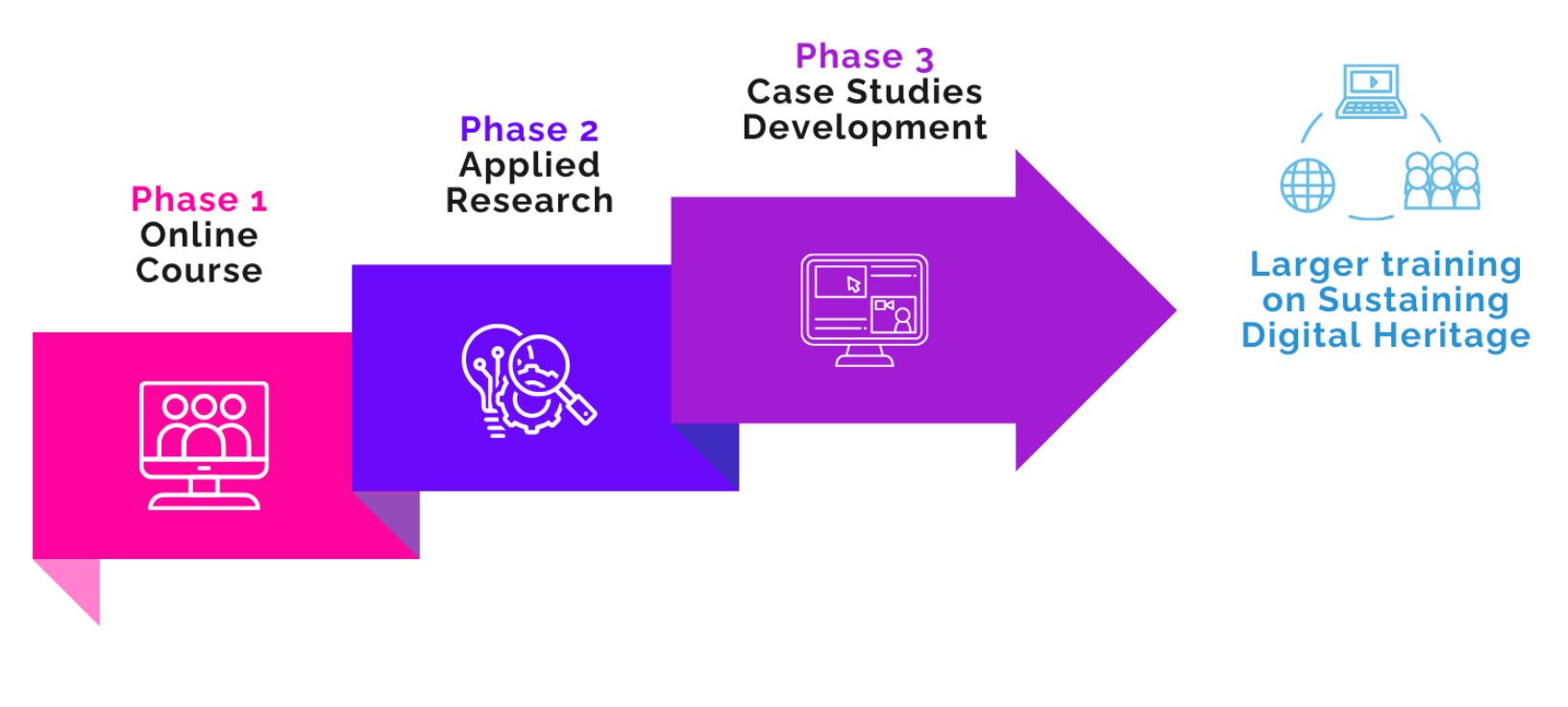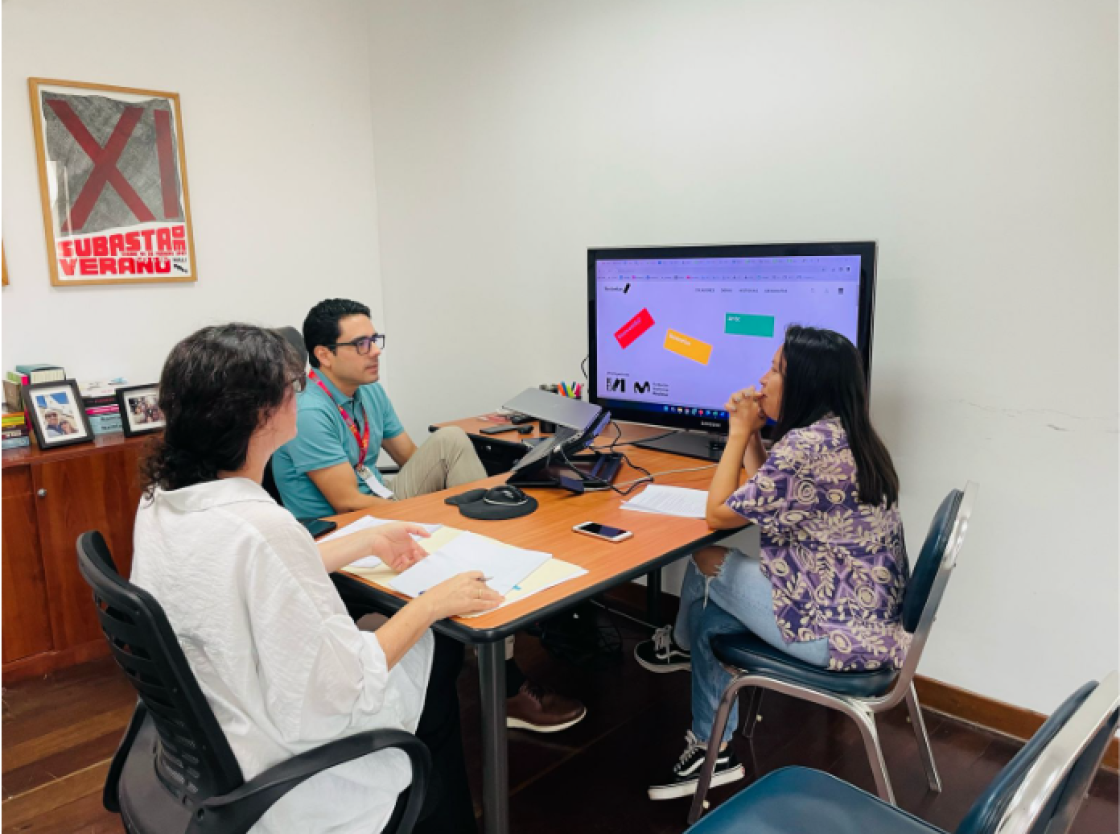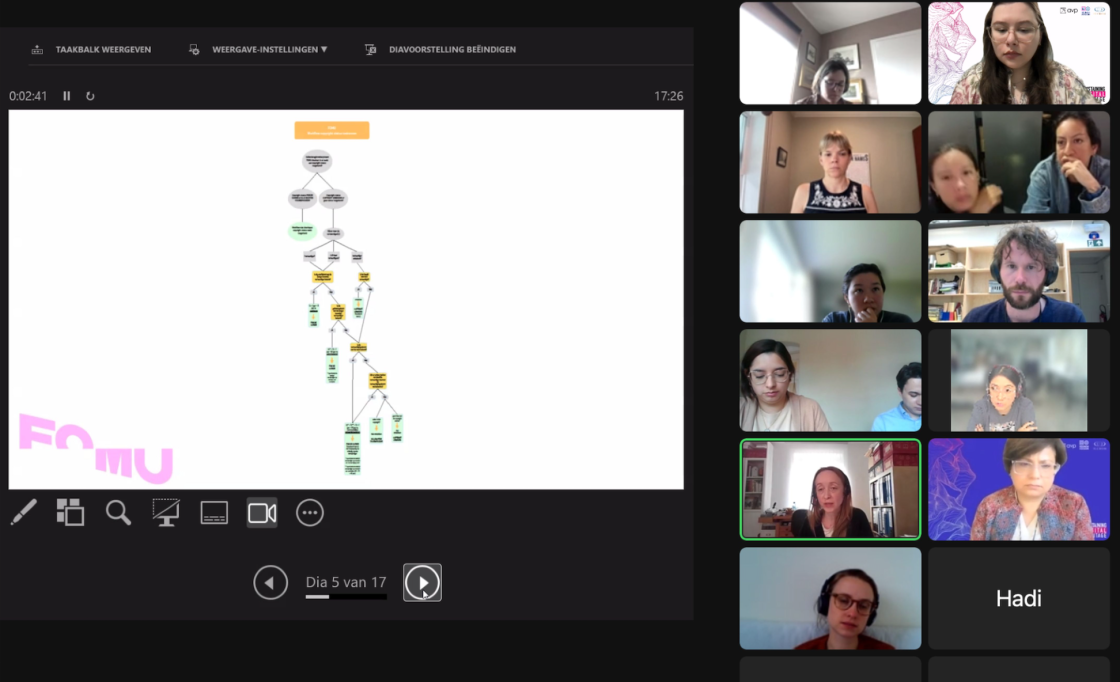Since 2021, the Sustaining Digital Heritage (SDH) programme, has set out with partners AVP and Netherlands Institute for Sound and Vision (NISV) to understand the preservation and access needs for digital heritage worldwide and to build a self-sustaining network of digital heritage leaders. The broader aim of the programme is to enhance the storytelling potential of digital heritage, as well as connect people, bridge divides, spark creativity and promote sustainable development.
As part of the Sustaining Digital Heritage programme, a first capacity-development course on Sustainable Digital Heritage was launched with a cascading, blended approach to learning in three phases: 1) Online course week in November 2023, 2) Applied research and mentoring from January–June 2024, and 3) Case study development (July–August 2024).
During the second phase of the course, four diverse memory-based institutions – acknowledged as “learning partners” of the project, and located in ICCROM Member States Ecuador, Belgium, Peru, and Türkiye – embarked on a self-improvement journey, supported through distance mentoring and the formation of a community of practice.
Smaller changes, larger impact: The Sustainability Flywheel Model, ICCROM and AVP’s framework for transformative action
The Sustainable Digital Heritage training was founded on the Sustainability Flywheel Model, ICCROM and AVP’s human-centered design framework for transformative action which guides institutions in engaging with their users, anticipating their needs, and developing tailored access solutions which also ensure long-term preservation to their digital collections.
First launched in 2022 with The Sustainability Test: A Self-Assessment Tool for Evaluating Digital Sustainability, the Flywheel Model formed the basis for the initiative’s online course week and the projects which followed in the applied research phase. It consists of four stages: Adopt a Service Mindset, Right-Size Digital Operations, Deliver Value and Demonstrate Impact.
Starting in January 2024, the course’s four learning partners each developed unique projects based on the Sustainability Flywheel Model’s approach to making iterative, incremental improvements to digital sustainability through first adopting a user-driven design approach and working within institutional contexts and available resources.
- Fotomuseum Antwerp (Belgium) set out to explore intellectual property related issues and update its copyright workflows with the goal of enhancing the visibility of its digital collections and better communicating access uses and limitations with users.
- Instituto Nacional de Patrimonio Cultural of Ecuador (Ecuador) aimed to develop a new system prototype of their online search engine and inventory SIPCE (Sistema de Información del Patrimonio Cultural del Ecuador) guided by their process of engaging with and understanding the needs of the institution’s direct users.
- Museo de Arte de Lima (Peru) sought to make improvements to its digital platform Historias – in the areas of functionality, long-term sustainability, and overall audience reach – through engaging with and understanding the needs of target user groups.
- Douzan Art and Culture (Türkiye) looked to plan a new, better integrated online archive system, New Horizon, by determining the requirements for the more efficient archiving and publishing of its assets in all three program streams.
Fostering a community of practice: Looking ahead and building momentum
As institutions with digital collections worldwide face a number of common challenges, there are many benefits to coming together in a community of practice. The Sustaining Digital Heritage course aimed to connect learning partners over the last nine months, allowing them to share their experiences and learn from one another.
Expanding the community of practice and sparking further innovation, the collective outcome of the first Sustainable Digital Heritage course will follow in the form of case studies and learning tools developed by learning partners to be used to assist in training future cohorts.
Documenting and sharing the positive change enacted within the participating institutions will help to promote critical reflection on how such approaches may be implemented in various contexts, allowing for a consideration of major challenges and gaps in digital heritage training and how we may together begin to overcome them.
If you are interested in becoming a learning partner or a partner of the Sustaining Digital Heritage programme please send an email to digitalheritage@iccrom.org for further information.



![“The best lesson that I learned was to take care of what the users want. [...] I think the Flywheel Model was very useful because … I think we can transfer this methodology [to projects other than the SIPCE system]. I also think that this Flywheel Model allows us as an institution to implement tools: to catalogue, preserve our digital heritage, and also disseminate it … to the citizens and specific users, [according to] their needs.” – Team Member from Instituto Nacional de Patrimonio Cultural of Ecuador](/sites/default/files/2024-08/sdh_webarticle_image3.png)

